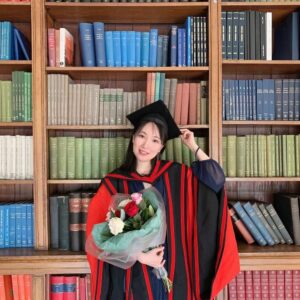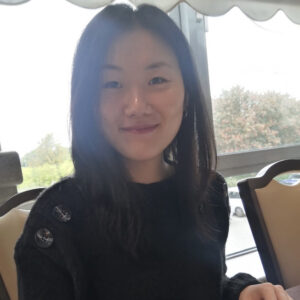Overview
From political communication to discourse and culture, heritage industries to media and entertainment, and film and television to social media, the Department of Communication and Media produces cutting-edge research that links strongly with most key areas of inquiry in this major field of study. A PhD/MPhil in Communication and Media allows you to embrace the study of communication and media in an inclusive and comprehensive manner.
Introduction
The Department of Communication and Media is a leading centre for the study of how ideas are influenced, expressed and shared, currently ranked within the world top 75 for Communication (Shanghai Global Rankings of Academic Subjects 2025).
Through our research, we’re casting an innovative light on many aspects of the discipline, from how mass media influence democracy to how English is evolving as an international language. Our internationally acclaimed research feeds insights such as these directly into our teaching. We influence many fields, from politics and entertainment to healthcare and e-business.
As an outward-looking department, we maintain exciting, productive partnerships with industry, the arts and key creative venues in Liverpool, nationally and internationally. In research or as a student, this is the place to get your voice heard.
When you undertake postgraduate research with us, you’ll benefit from:
- Excellent library facilities
- Opportunities for interdisciplinary inputs
- High quality research methods training
- A regular programme of communication and media seminars open to everyone
- An annual postgraduate research conference, usually held in May.
Research topics
We particularly welcome research proposals that match those of our researchers. This includes:
- Media in humanitarian crises; media and human rights; media coverage of migration and free movement across Europe
- Latin American culture and the relationship between politics and aesthetics; contemporary photography
- Rhetoric, policy frameworks and methodologies that capture the impact and legacy of large-scale urban interventions and events
- Broadcasting history, institutions and their programming; film and television documentary, television current affairs programming
- Science fiction, fantasy and ‘cult’ TV and film; PR and promotional cultures with a particular interest in social media
- Gender, political communication and news media and the ways in which they intersect
- The moral function of communication; conceptions of home, identity and belonging in communicative capitalism
- Critical discourse studies of populist political communication; the intersection of politics and the media as key carriers of public imaginaries of social reality
- Experimental, oppositional, marginal and other alternative filmmaking histories and practices; the work of Andy Warhol and other artist-filmmakers
- Argumentation Theory, Rhetoric and Discourse Analysis, with emphasis on in the study of argumentation in strategic communication contexts
- Media discourse (especially approaches from a (socio) linguistic perspective) and the uses of dialogue in TV drama
- Media and the city; urban cultural studies; visual culture, space and place; cultural mapping and spatial humanities; popular culture, heritage and cultural memory
- International and global journalism; young people as media audiences; the Internet’s role in relation to online risks and to enabling democratic deliberations
- Political communication during election campaigns, particularly online; social media and their use by voters to communicate politically
- Stardom/celebrity, Hollywood and transnational cinema, screen performance, cult media, and digital media/Virtual Reality
- The production of news, documentary and factual content within public service and commercial broadcasting, and within community and citizen journalism.
- Media discourses and representations in relation to gender and sexuality; the role of media in identity and community
- American independent cinema; Hollywood and global entertainment; cinema and youth cultures; the B Film, exploitation and creativity; Hollywood and Greek cinema
- The social, political and cultural impacts of digital media; digital media and interpersonal interaction; digital inclusion/exclusion; digital research in the social sciences.
Research culture
Our research activity is conducted within four research groups which share common interest in critical, interdisciplinary analysis of a variety of modes of mediated communication across social spaces and fields.
- Culture, Space and Memory research group brings together ideas and intellectual orientations on the cultures, practices and spatial dispositions that inform transdisciplinary approaches to media and communication in the digital age.
- Discourse, Data and Society research group looks at how language and discourse – in traditional/social media, politics and the wider public domain – act as vehicles of social change as well as carriers of relationships of power and inequality in contemporary societies.
- Media, Politics and Society research cluster deals with critical analysis of media outputs and journalism from the perspectives that highlight political agendas, assess the impacts on marginalised groups, and foster understandings of human rights.
- Screen and Film Studies research cluster focuses on film and television studies, with the study of digital screens that cut across various media sectors emerging as a third key area of expertise.
The University of Liverpool Digital Media and Society Institute (DMSI) brings together researchers from a range of disciplines to explore the role and impact of digital media in society today.

